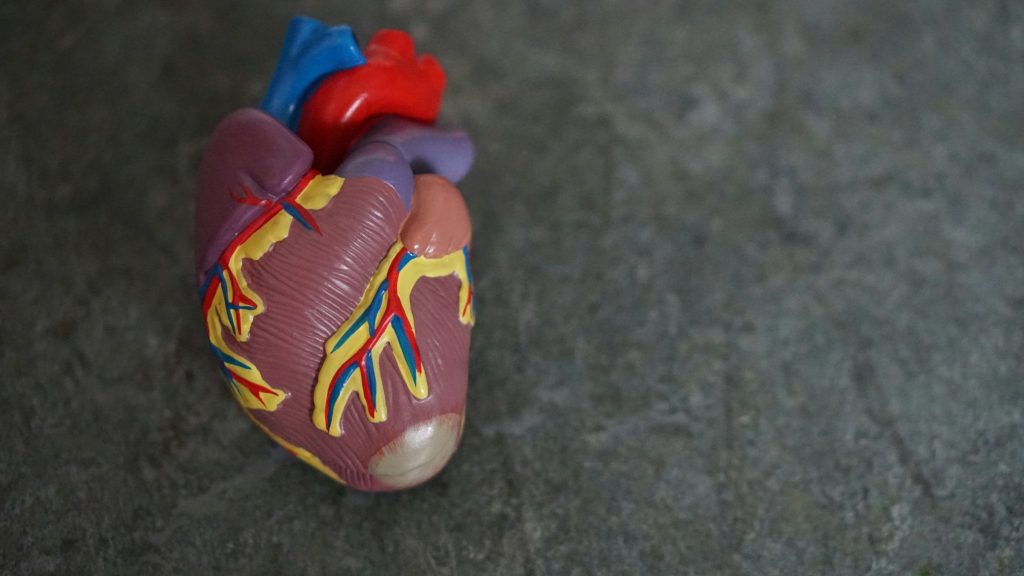Initiative warns of deadly risk of heart disease in women
Cardiovascular diseases, Gender medicine

© Angela Monecke
Cardiovascular diseases in women are still underestimated, despite being their most common cause of death. The awareness day ” #GoRed – Women’s Hearts Beat Differently” on February 2nd drew attention to this fact with the alarm color “red.”
Nausea, upper abdominal pain, headache. Harmless? On the contrary. These are typical symptoms of a heart attack in women, which may not necessarily manifest as a sharp pain in the chest, as is classically seen in men.
“We women know almost nothing about female heart attacks, although it is the greatest threat to our lives,” explains television journalist Lisa Ortgies, who suffered a heart attack at the age of 51 during a stay in New York – a heart spasm accompanied by nausea, shortness of breath, and numb limbs. However, she never remotely thought that “this could have something to do with my heart,” says the #GoRed ambassador.
In 2022, over 190,000 women in Germany died from cardiovascular diseases. Moreover, the chances of recovery, especially after a heart attack, are worse for women. If gestational diabetes persists, the risk of a heart attack is increased by 40%, even if the affected woman does not develop type 2 diabetes thereafter. With manifest diabetes, the risk is even five times higher than in women without gestational diabetes.
“When women are hospitalized due to a heart attack, the likelihood of dying is almost 6% higher than in men,” reports Dr. Leonie Uhl, spokesperson for the Health Promotion Advisory Board of Healthcare Frauen e.V., on the eve of the #GoRed Awareness Day at the German Parliamentary Society in Berlin. Under the leadership of the association, various stakeholders in the healthcare sector joined forces in 2022 as part of the “Heart-Brain Alliance” to support the #GoRed campaign.
Not only women but also doctors underestimate the danger. Women’s hearts are smaller and beat faster. Female individuals also tend to develop heart problems later in life than men. However, not only do women themselves often underestimate their own risk of heart attack, hypertension, or arrhythmias, but doctors also recognize the symptoms of a heart attack in women less frequently than in men. Consequently, the correct treatment is delayed. Moreover, large clinical studies on women’s heart health focusing on medication, dosage, and treatment methods are lacking.
“Women’s hearts not only beat differently; the female body is different,” emphasizes SPD member of the Bundestag and specialist in pediatric and adolescent medicine Nezahat Baradari. Therefore, medical colleagues should pay attention to “where the woman’s body is in its cycle, whether pre- or post-menstrual, as hormones play a very significant role here as well.” She also advocated for the early detection of cardiovascular diseases, which could develop even in the womb, for example, in expectant mothers with gestational diabetes.
“In my studies, I didn’t learn that there were such concrete differences between men and women,” says heart surgeon Dr. Viyan Sido regarding gender medicine. A few years ago, during a night shift at the clinic, she noticed that she should administer the same dose to a 40-kilo patient as to a 180-kilo patient. This realization led her to establish an outpatient clinic with a special women’s consultation hour later on.
“Go out, speak up, include women and men, and advocate for our common cause,” says CSU member of the Bundestag Erich Irlstorfer. The politician, who has type 2 diabetes, suffered a heart attack, underwent several heart surgeries, and therefore emphasizes even more on preventing cardiovascular diseases.
Pharmacies should also raise awareness of women’s heart health. Federal Health Minister Prof. Dr. Karl Lauterbach already plans to involve them more in the prevention of cardiovascular diseases. The Federal Ministry of Health is increasingly investing in early detection and treatment, both in children and adolescents and in adults.
Lauterbach advocates for a new law on early detection. In addition to the announced Federal Institute for Prevention and Enlightenment in Medicine (BIPAM), screening measures and expanded disease management programs are planned. The BMG also aims to reduce tobacco consumption. Prof. Lauterbach already announced a law on the early detection of cardiovascular diseases in October 2023. Dr. Uhl demands that the topic of “women’s hearts” must also be considered in it, referring to the new position paper of the #GoRed initiative.
The #GoRed initiative was supported by Medical Tribune (MedTriX Deutschland).
Political demands for more women’s health
Increasing awareness of cardiovascular health in women is the goal of the annual nationwide action day, which takes place on the first Friday of February each year and is inspired by the National Wear Red Day® in the USA.
The #GoRed initiative has formulated five demands for gender-specific cardiology, which should be implemented promptly:
Integration of gender-specific medicine into undergraduate and continuing medical education. So far, there are only a few medical faculties that offer gender-sensitive teaching as a cross-sectional or elective subject. However, gender-specific medicine should already begin in medical education, among other things, through mandatory teaching in the core curriculum of medical education.
Better studies for more evidence and fairer healthcare provision. Among other things, EU requirements for a representative gender distribution in clinical trials should be implemented.
Annual statutory prevention for women aged 40 and older with increased cardiovascular risk.
Strengthening individual women’s health literacy, e.g., better remuneration for talking medicine.
Promotion of societal sensitivity, including cooperative health education similar to sex education in primary school as well as secondary levels I and II, as well as screening initiatives.
The goal of the participants in the Heart-Brain Alliance is to reduce the number of cardiovascular events by 30% by 2030.
More information: agingforfuture.de/frauenherzen
Medical Tribune Report, Autor: Angela Monecke